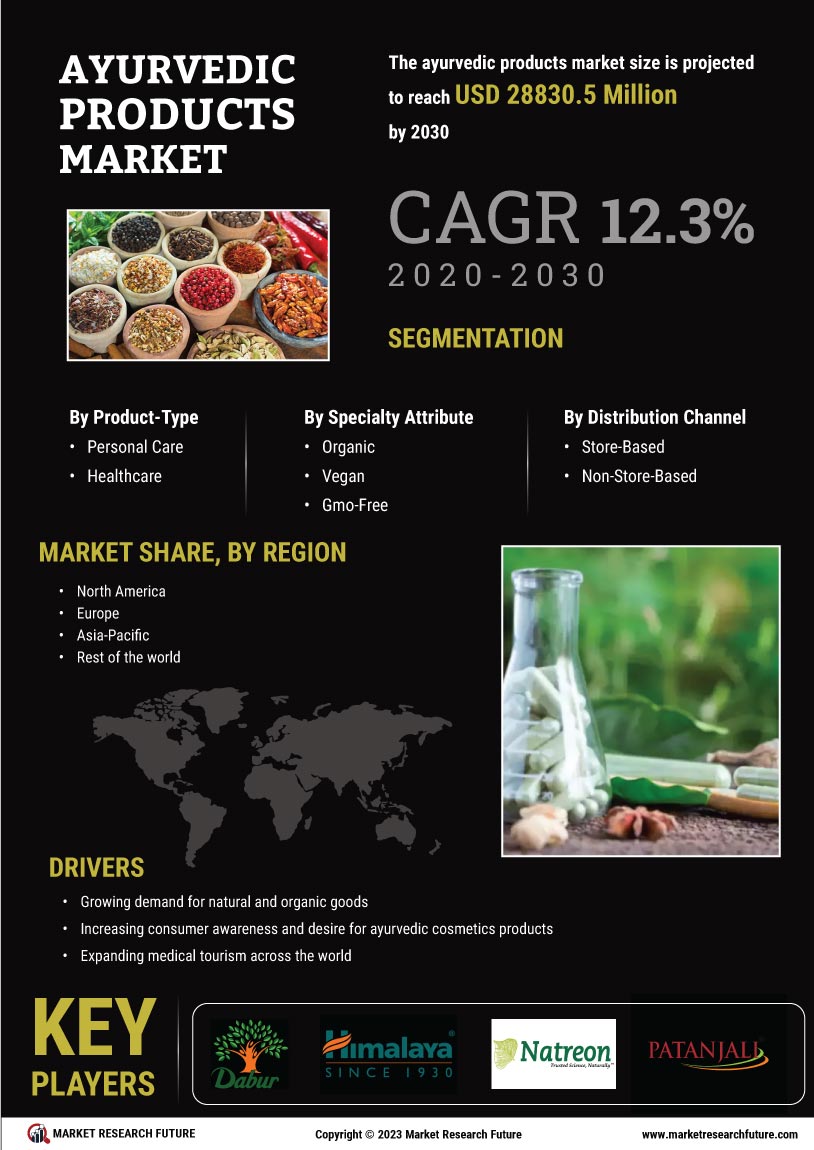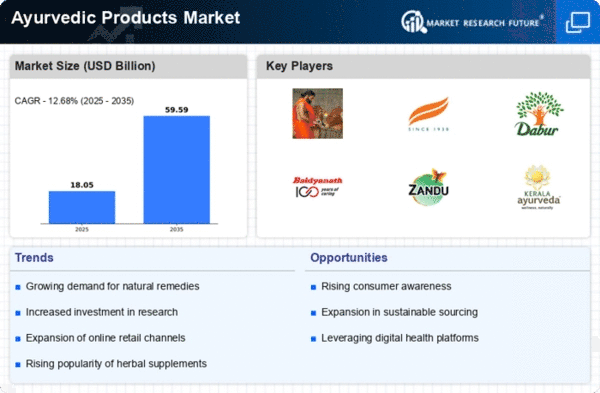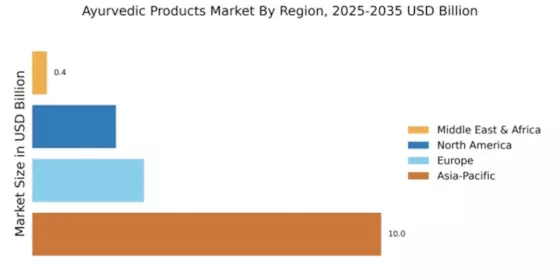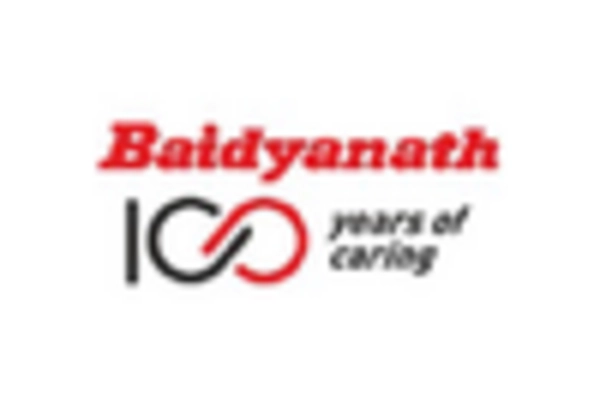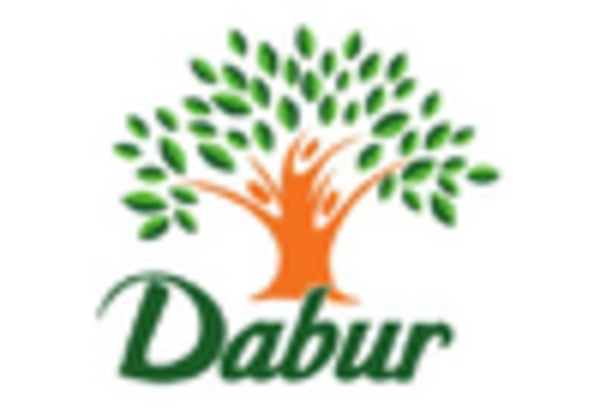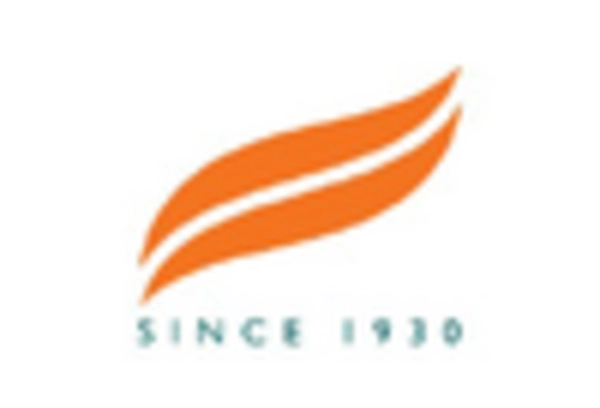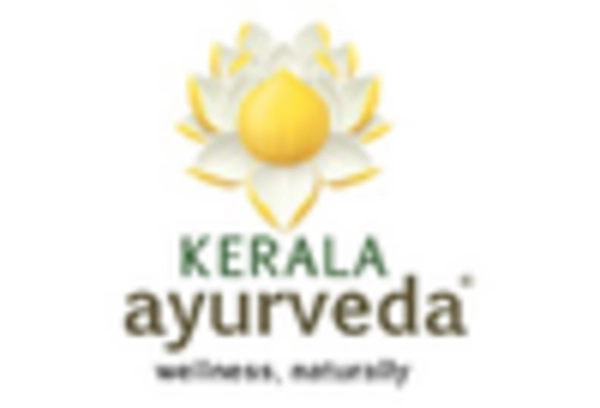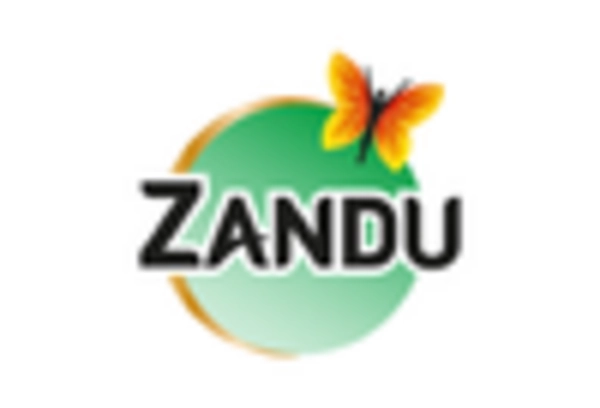Diverse Product Offerings
The Global Ayurvedic Products Market Industry is characterized by a diverse range of product offerings, catering to various consumer needs and preferences. From herbal supplements to skincare products, the variety available allows consumers to choose items that align with their individual health goals. This diversity not only attracts a broad customer base but also fosters innovation within the industry. As companies expand their product lines to include Ayurvedic formulations, they are likely to capture the interest of consumers seeking tailored health solutions. This trend may contribute to the market's growth, as the increasing availability of Ayurvedic products enhances consumer access and choice.
Market Growth Projections
The Global Ayurvedic Products Market Industry is projected to experience substantial growth, with estimates indicating a market size of 16.0 USD Billion in 2024 and a remarkable increase to 59.6 USD Billion by 2035. This growth trajectory suggests a compound annual growth rate of 12.68% from 2025 to 2035, reflecting a strong and sustained interest in Ayurvedic products. Such projections highlight the potential for expansion within the industry, driven by factors such as rising consumer awareness, government support, and the integration of Ayurveda into modern healthcare practices. This upward trend indicates a promising future for the Ayurvedic market on a global scale.
Government Support and Regulation
Government support for traditional medicine, including Ayurveda, plays a crucial role in shaping the Global Ayurvedic Products Market Industry. Many countries are implementing policies that promote the use of Ayurvedic practices and products, recognizing their cultural significance and potential health benefits. This regulatory backing not only enhances consumer confidence but also encourages manufacturers to innovate and expand their product lines. As a result, the market is poised for growth, with a projected compound annual growth rate of 12.68% from 2025 to 2035. This supportive environment may lead to increased investments in research and development, further solidifying Ayurveda's position in the global health landscape.
Growing Demand for Natural Remedies
The Global Ayurvedic Products Market Industry experiences a notable surge in demand for natural remedies, driven by an increasing consumer preference for holistic health solutions. As individuals become more health-conscious, they gravitate towards Ayurvedic products that promise natural healing without the side effects often associated with synthetic alternatives. This trend is reflected in the market's projected growth, with a valuation of 16.0 USD Billion in 2024, indicating a robust interest in traditional medicine. The inclination towards natural products is not merely a passing trend; it appears to be a fundamental shift in consumer behavior, suggesting a long-term commitment to wellness through Ayurveda.
Rising Awareness of Health Benefits
There is a growing awareness of the health benefits associated with Ayurvedic products, which significantly influences the Global Ayurvedic Products Market Industry. Educational campaigns and increased access to information have led consumers to recognize the potential advantages of incorporating Ayurvedic practices into their daily routines. This heightened awareness is likely to drive market growth, as consumers seek products that align with their health goals. The market is expected to expand further, with projections indicating a rise to 59.6 USD Billion by 2035. This suggests that as more individuals become informed about Ayurveda, the demand for these products will continue to escalate.
Integration of Ayurveda in Modern Healthcare
The integration of Ayurveda into modern healthcare systems is emerging as a significant driver for the Global Ayurvedic Products Market Industry. Healthcare professionals are increasingly acknowledging the value of combining traditional Ayurvedic practices with contemporary medical approaches. This synergy not only enhances patient care but also broadens the appeal of Ayurvedic products to a wider audience. As healthcare systems evolve, the market is likely to benefit from this trend, attracting consumers who seek comprehensive health solutions. The anticipated growth trajectory suggests that Ayurveda will become an integral part of health and wellness strategies, further solidifying its relevance in the global market.
